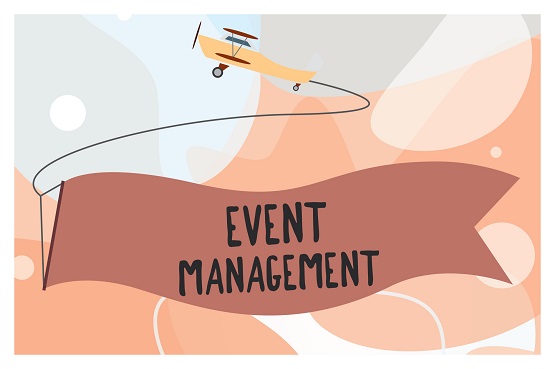Are you trying to figure out how to host a great event?
There are so many details that you need to get right if you want to hold a great event. You need to do things such as understand your goals, build committees, and make use of the right planning tools. Regardless of whether you're organizing a corporate event or a gathering of friends, proper planning will set the stage for whether an event is a failure or a success.
Many people don't realize that there are several easy steps you can take to make sure that the event you're organizing is memorable and meaningful for all who attend.
If you want to find out more, read on and we'll tell you everything you need to know.
1. Identify What You Want to Accomplish
Even though you might be clear about your goals, this doesn’t mean that your stakeholders understand what they are. This is why you should bring everybody together to get on the same page.
You should be clear about several things before you do this. It’s first essential to understand why you want to organize your event. You should also know what metrics you have in place to measure your success.
If you don’t get all of your event’s stakeholders together in one space, you’ll risk holding a disorganized event.
2. Give People Roles and Responsibilities
One of the most important things you can do as an event organizer is to establish clarity. This is why everything you do should in some way serve your goal to eliminate ambiguities. The best way to do this is to determine who is doing what for your event.
This is something that you should try to do at your first meeting to set the stage for the rest of your preparations. At this meeting, try to create subcommittees for each part of holding the event. You should consider creating several subcommittees: vendor management, programming, marketing, and sponsorships.
A vendor management team takes care of everything related to third parties such as finding a vendor and hiring a caterer. The programming committee's responsibilities should be related to setting up the event's agenda, seeking entertainment, and laying out the sessions and panels. It's also a good idea to have a budget management committee.
To make your job easier you should familiarize yourself with the best event planning tools.
3. Have a Budget
After you have clarity on your goals and know what peoples’ roles and responsibilities are, you’ll be ready to set the budget for your event. It will also be easier for you to find sponsorships and set up other kinds of revenue streams.
There are several kinds of expenses to consider when setting your budget. Regarding your venue, you need to think about more than the cost of the space’s rental fee. You’ll also have to take things into account related to insurance costs and A/V costs.
With design, it’s a good thing to get down to the specifics. Consider the cost of things such as tables, chairs, and decorations.
Regarding your event programming, decide whether or not you’ll be paying your event’s speakers. If you will be doing this, know how much you can afford.
4. Offer Virtual Participation Options
In the post-pandemic world, it’s vital to offer virtual participation options when you’re planning an event. This is why you should have the right tools available to you for doing this, such as a virtual events platform.
This is a space where participants can watch panel discussions and talks while also interacting with one another and with event hosts. It’s a good idea to choose a virtual event platform that allows people to have breakout rooms where they can have more intimate interactions.
5. Get Clear on the Logistics
You should start planning your event at least three months in advance. If you’re able, it’s even better to give yourself six months to prepare. Don’t rush yourself when you’re deciding on a date.
Look at when competing events are being held and take school and university calendars into account. You should also consider not scheduling your event simultaneously as important holidays such as Easter or Christmas. It’s also a good idea to contact your most crucial event speakers to determine when they’ll be available to participate.
After you’ve identified several possible dates for holding your event, contact your venue shortlist. Once you know which venues are available, choose the best one. If you can’t find any venues that are available for your preferred dates, consider choosing a different date.
6. Make Your Big Plan
Many event planners consider this to be your “bible.” It is a clearly-written document that answers everybody’s concerns. You can revise it over time. This is why you should make sure that the document’s file names reflect the most recent updates.
Use your big plan to build out all aspects of your event. You’ll want to describe the logistics for catering, vendors, and the venue. You can also use this document to keep track of your speakers and entertainment.
It should also contain your project timeline and your event planning checklist.
7. Establish Your Brand
By building a brand, you’ll be clarifying what your event stands for, what kinds of people will want to attend, and what attendees should expect. A great event brand reflects all of these things.
If you’re holding a DIY party, it’s good to recognize that your event might become a stepping stone for something much larger. This is because, over time, it’s possible to develop your event brand into an institution.
8. Find Partners to Help Expand Your Horizons
Depending on what kind of event you’re organizing, it’s a great idea to seek out partners and sponsors. If you’re creating a for-profit event, your sponsors can help to generate revenue. If you’re holding a corporate customer event, sponsorships can give you the revenue to ensure that your company can cover its costs.
Partnerships are also essential if you want to host a great event. Partners can help you to spread your message to new communities. The main things you want to look for in finding a partner are people or groups in alignment with your cause.
9. Design Your PR and Marketing Plans
Several things are good to include in your PR and marketing plans. First, you should make a public relations plan. By doing this you’ll be ready to reach out to the media and engage them with your event.
You’ll also want to develop an owned media plan. This includes things like your company blog, headlines, newsletters, and company contact lists. In developing this plan, you should ask yourself what content you’ll be making before, during, and after the event.
Lastly, make a plan for your paid media. This includes all aspects of your paid marketing. To make this plan, it’s a good idea to know what social media channels your target audience is most likely to use.
10. Set Up Your Event’s Day of Process
You should set up your day of process to get rid of the possibility that you’ll be surprised by unexpected changes.
When you find that you’re confused, create a run-of-show. A run-of-show is an outline of all of your essential event information. While your event’s approaching, it’s important to be aware that things will go wrong. Having this in place will make it easier for you to accommodate your plans for inevitable challenges that come up.
11. Make Contingency Plans in Case of Emergencies
You can’t plan for every aspect of your event. It’s always possible that things will go wrong. Whether it be bad traffic or horrible weather when you’re hosting an outdoor party, you need to have a plan in place for dealing with the unexpected.
12. Don’t Forget About the Post-Mortem
Don’t procrastinate with your post-mortem. It’s a good idea to act when your event is still fresh in your team’s mind. Get them together to meet and talk about what went well and what could have been improved.
You can also reach out to the event attendees to find out what they liked and what they didn’t like.
By doing both of these things, you’ll get valuable insight into making your next event even better.
Follow These Event Planners' Steps to Make Your Job Easier
Even though it can be difficult to organize an event, there are several things that you can do to make sure that it’s a success. Before you start putting it together, make sure that you know your goals. You should also build a team and develop an excellent plan for moving forward.
Don’t forget to sign up for the Pitch-In Club if you’re looking for more event planners' tips, tricks, and resources. Our event planning and tracking tool will help you organize your events and encourage people to pitch in.

